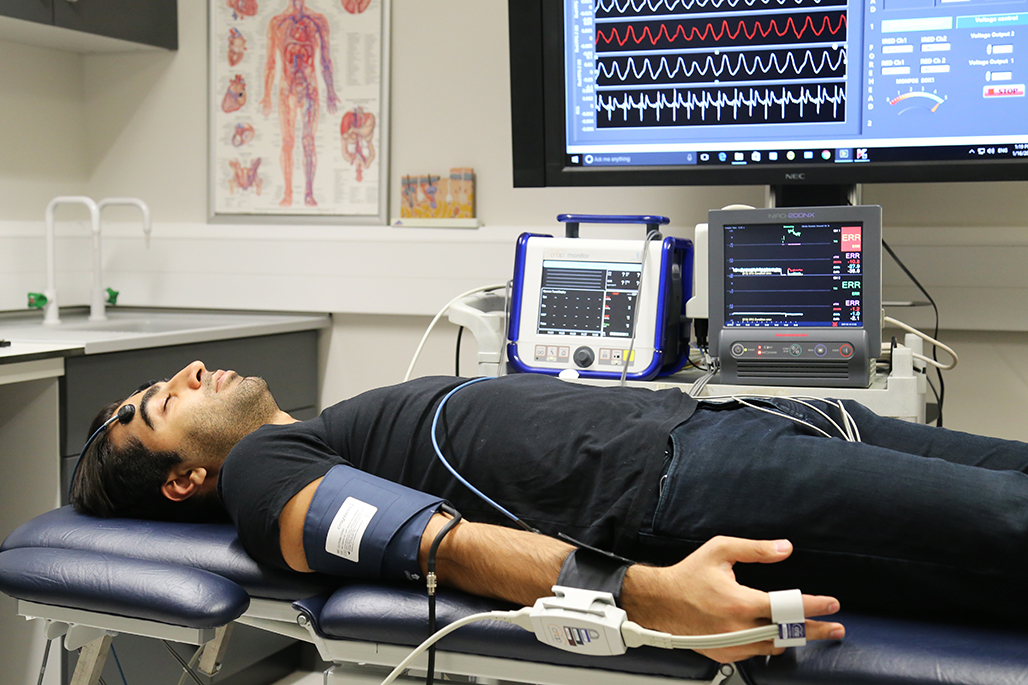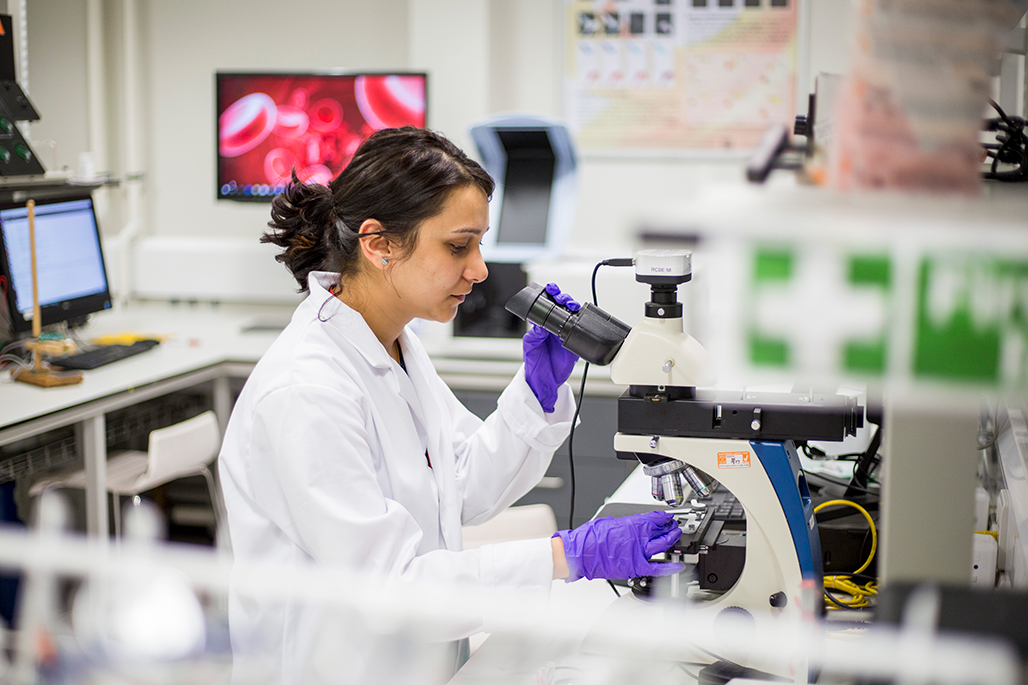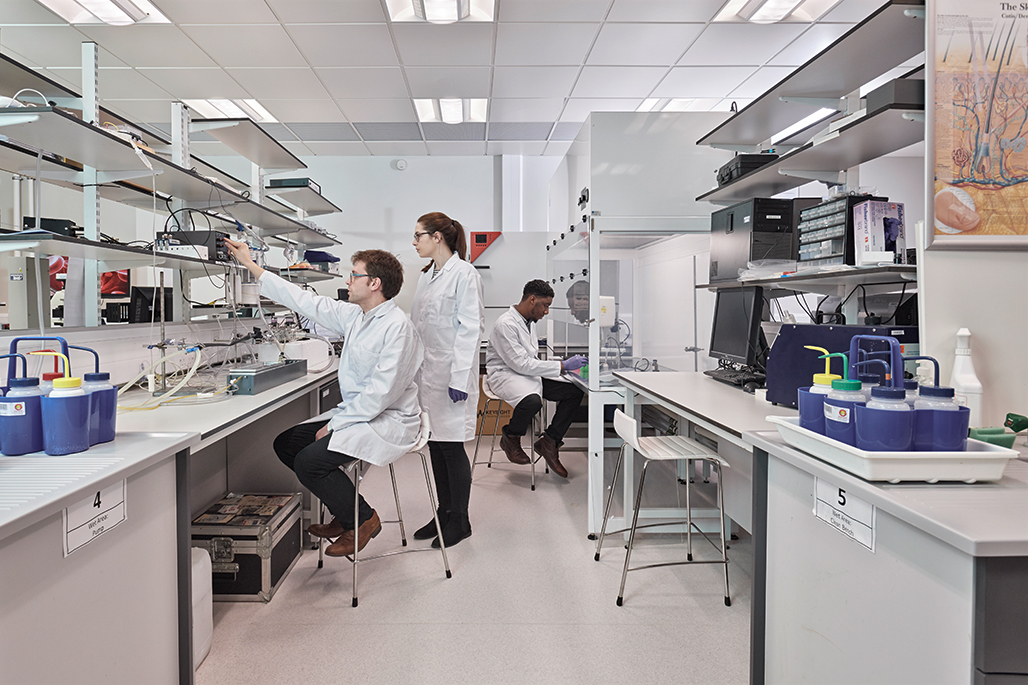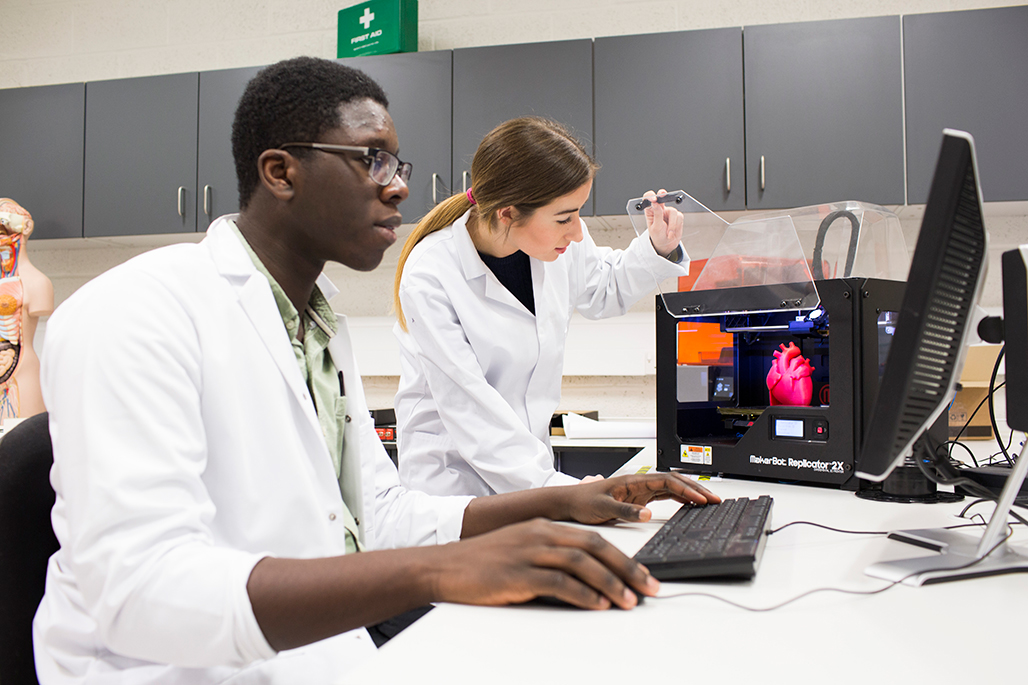Electrical and Electronic Engineering, and Biomedical Engineering degree Course overview
At City, we welcome students from diverse backgrounds and understand not everyone has the qualifications to apply directly to our engineering degrees.
This one-year Foundation course is designed for people who have the interest and aptitude to study an engineering degree, but who don’t meet the entry requirements.
You’ll study topics to equip you with academic knowledge to succeed in your later studies.
You will also receive support to develop the independent study skills that will help you thrive at degree-level.
By the end of the year, you will have built a firm foundation for your future success as a university student.
After successfully completing this foundation year, you can progress to the first year of:
- BEng degree in Energy and Sustainability Engineering
- MEng degree in Energy and Sustainability Engineering
- BEng degree in Engineering Systems
- MEng degree in Engineering Systems
- BEng degree in Biomedical and Healthcare Engineering
- MEng degree in Biomedical and Healthcare Engineering
- Another engineering degree at City, University of London, by agreement.
As a Foundation course student, you will take most of your classes at City and Islington College. Some laboratory classes are taken at City, University of London.
Structure
Course content
The foundation year includes the following key modules:
- Electrical and Electronic Principles
- Electrical Science
- Mathematics
- C Programming
- Study Skills
- Electronic Hardware and Software Experiments.
Plus one option from:
- Computer Hardware
- Biomedical Engineering.
Approximately half your time is spent on scheduled learning, half on independent learning.
Download course specification:
Teaching and assessment
As a Foundation course student, you will take most of your classes at City and Islington College. Some laboratory classes are taken at City, University of London. Both institutions emphasise tutorial support and study skills. Read more about the course on the City and Islington College website.
There is some flexibility to change to a different engineering course after the foundation year, subject to the agreement of the course director concerned.
You may use the study and social facilities at both institutions. Assessment is by a combination of formal examinations and coursework.
Assessment methods
Assessment is based on written examinations, formal laboratory reports, technical reports and essays, class tests and oral presentations of project or software development work.
Percentage of the course assessed by coursework
The approximate percentage of the course assessment, based on 2019/20 entry is as follows:
Foundation year
100% written, 0% coursework.
Overall workload
Single taught modules normally comprise minimum of 20 hours of lectures, 10 hours of problem solving, example and revision classes, a minimum of 15 hours of laboratory classes, and on average at least 60 hours of independent study.
Most contact hours will take the form of lectures, tutorials, practical work and design projects. The number will decrease as you progress and you become more able to direct your own learning.
Approximate study time based on 2019/20 entry is as follows:
Foundation year
43% scheduled learning, 57% independent learning.
Fees and funding
Fees for year 2024/25
Home/UK
£9,250
The tuition fees indicated are for the 2024/25 academic year only. Fees for future years may be subject to an inflationary increase in the region of 5%.
Funding options
- Fee waivers are available for this course.
- Means tested support is available for 2024/25 entry.
Additional expenses
Some of our degrees may involve additional expenses which are not covered by your tuition fees. Find out more about additional expenses.
Career
Studying this one-year Foundation course is your first step towards a rewarding career in engineering.
After successfully completion, you are eligible to progress to a three-year BEng or four-year MEng engineering course. These degrees provide a pathway to Chartered Engineer status and a range of career options.
You may specialise in biomedical engineering, developing vital equipment to diagnose and treat disease, for companies like Siemens and Philips Healthcare.
If you go on to study Engineering systems which encompasses Electrical and Electronic Engineering, you could follow in the footsteps of past graduates who now work for businesses like BT, the National Grid, Huawei and AECOM.
How to apply
Applications for degree courses must be made through the Universities and Colleges Admissions Service (UCAS).
Please note that, at present, this course is only available to those who we would classify as Home students. Please contact us if you are unclear about your fee status. For overseas students who do not meet the entry requirements for year 1 entry, we recommend our affiliated international foundation course providers.
You can apply through your school or college using the Apply system, which enables you to submit your application directly to the UCAS website.
You can apply to up to five universities or institutions on the form. The UCAS code for City, University of London is C60.
Please take care to enter the correct course code when applying, particularly for subjects with a Foundation year or with BEng (Hons) and MEng (Hons) or BSc (Hons) and MSci (Hons) options.
UCAS has implemented an 'invisibility of choices' policy so that, on the initial application and while you are receiving decisions, each institution can see only their entry and not those of other institutions you have chosen. This ensures that your application for a course at City is considered solely on your academic and personal qualities.
You should submit your completed application form to UCAS with a £26.50 application fee. If you want to apply to City, University of London only, you can make a single choice application at a reduced rate of £22.
Admission enquiries
For general enquiries about the admissions process at City, please contact our Admissions Office:
Telephone: +44 (0)20 7040 8716.
Telephone lines are currently open between 10am - 3pm.
If your enquiry is about admission to a particular course, please use the contact details provided on the course page.
When to apply
Your application for entry in September 2024 should arrive at UCAS between September 2023 and the UCAS deadline in January 2024. Applications that arrive after the January deadline will be considered only at City's discretion.
Contacting UCAS
Address: Universities and Colleges Admissions Service (UCAS), Rosehill, New Barn Lane, Cheltenham, Gloucestershire, GL52 3LZ
Telephone:
- from inside the UK 0871 468 0468
- from outside the UK +44 (0)871 468 0468
For callers with hearing difficulties:
- from inside the UK use the Text Relay service on 18001 0871 468 0468
- from outside the UK dial +44 151 494 1260 (text phone) and then ask the operator to dial 0871 468 0468.
Facilities
Our students
Gain further insights into our courses through our students.
Ask a student
Want to find out more about student life? Chat with our student ambassadors and ask any question you have






